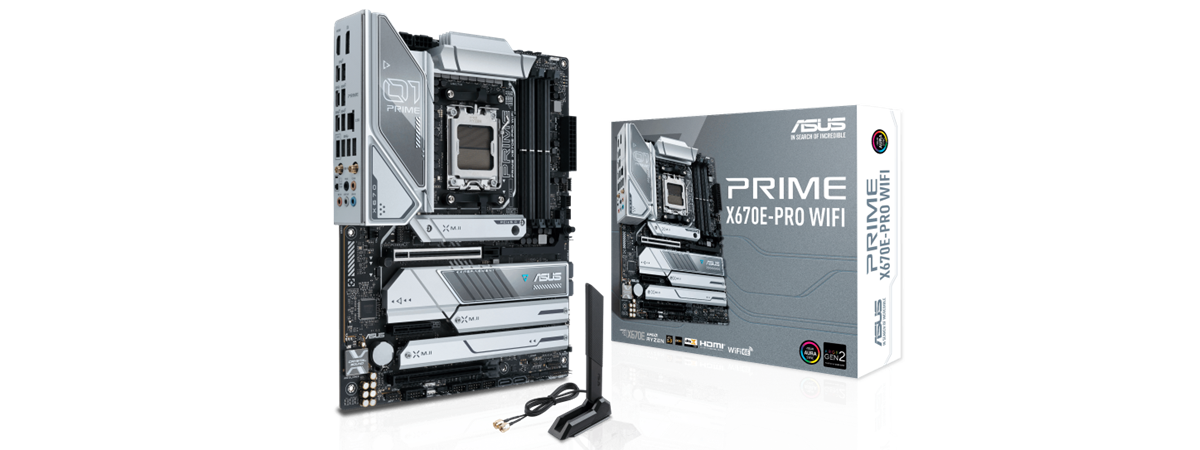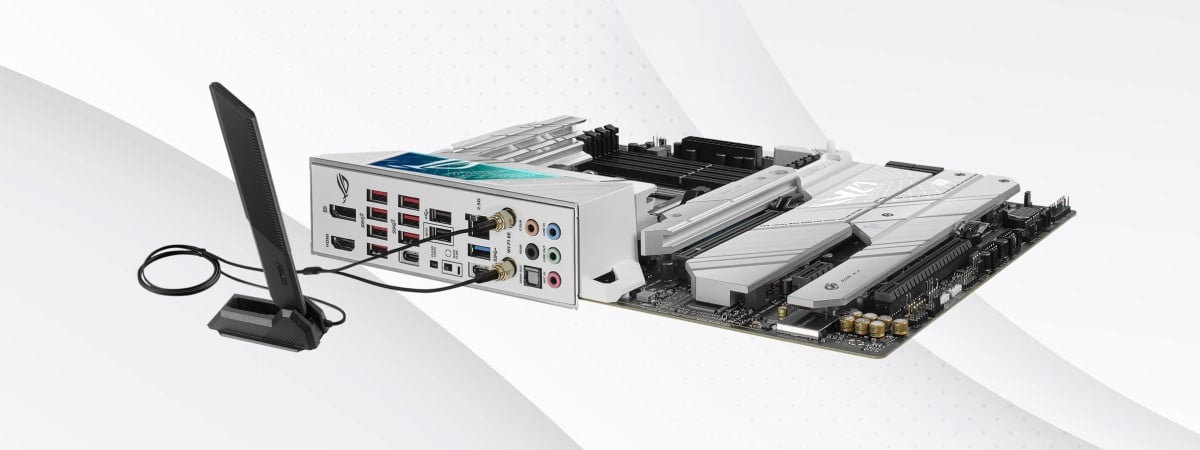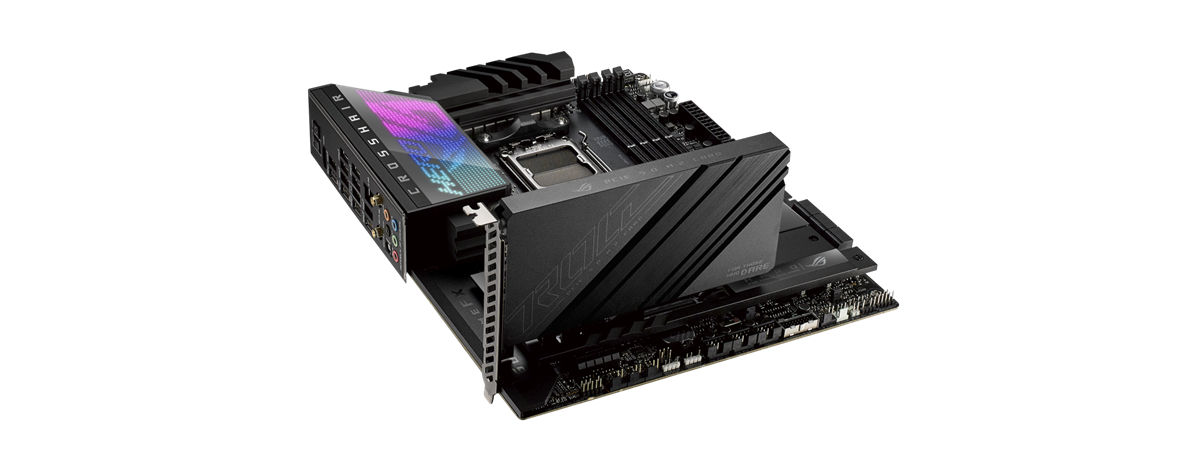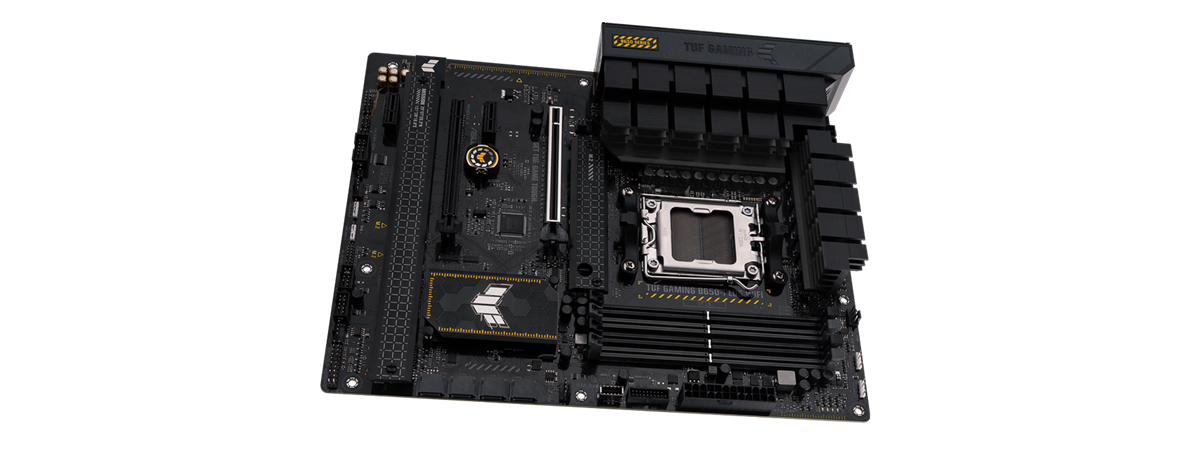
ASUS TUF Gaming B650-Plus WiFi - Benchmark results
I tested the ASUS TUF Gaming B650-Plus WiFi motherboard on a desktop PC that had the following hardware and software:
- Processor: AMD Ryzen 5 7600X and AMD Ryzen 7 7900X
- CPU cooler: Cooler Master MasterLiquid ML360R RGB
- Memory: Kingston Fury Beast RGB DDR5-6000 32GB
- Graphics Card: AMD Radeon RX 6800 (16GB)
- Storage: Kingston KC3000 NVMe PCIe 4.0 SSD (2TB)
- Monitor: ASUS ROG Strix XG32VQ Curved Gaming Monitor (1440p, 144Hz)
- Power Supply Unit: ASUS ROG Thor 850W Platinum
- Operating System: Windows 11 Pro version 22H2
I started by running the benchmark tool in CPU-Z. In the Single-Thread test, using the ASUS TUF Gaming B650-Plus WiFi motherboard, I got an excellent score of 783 points with the AMD Ryzen 9 7900X and 757 points with the Ryzen 5 7600X.
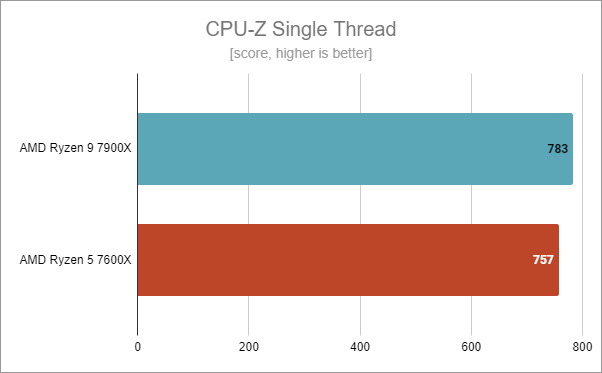
ASUS TUF Gaming B650-Plus WiFi: Benchmark results in CPU-Z Single Thread
In CPU-Z’s Multi-Thread test, which benchmarks all the cores of the processor, both the Ryzen 9 7900X and the Ryzen 5 7600X performed great. These results show that the motherboard can sustain demanding workloads even if your processor has a high core count, which is the case for the Ryzen 9 7900X.
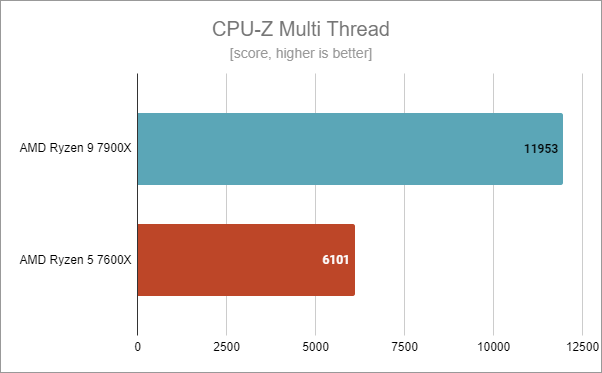
ASUS TUF Gaming B650-Plus WiFi: Benchmark results in CPU-Z Multi Thread
Similarly, the motherboard and the two processors had no issues in performing very well in Cinebench R23, a benchmark that also runs advanced calculations and makes the CPUs demand a lot of electrical power.
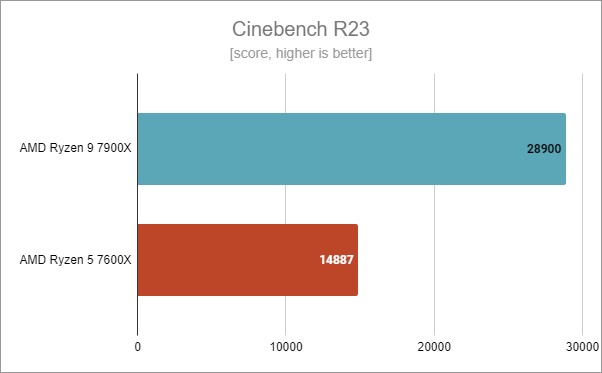
ASUS TUF Gaming B650-Plus WiFi: Benchmark results in Cinebench R23
In Blender, another rendering benchmark that’s also heavy on the processor and motherboard, I got excellent scores on the ASUS TUF Gaming B650-Plus WiFi motherboard. While the Ryzen 5 7600X had a lower result, as it only has 6 cores, the 12-core Ryzen 9 7900X performed above expectations on this motherboard.
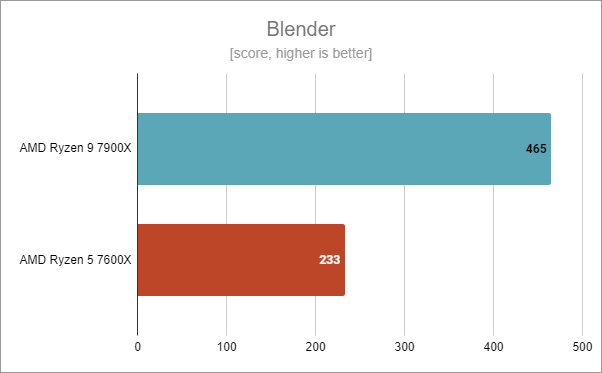
ASUS TUF Gaming B650-Plus WiFi: Benchmark results in Blender
Next, I used PCMark 10 to run a couple of benchmarks that evaluate the real-life performance of the computer. Using either processor, the PC I assembled with the AMD TUF Gaming B650-Plus WiFi proved to be very adept at all kinds of daily tasks, including web browsing, video conferencing, productivity tasks, and digital content creation.
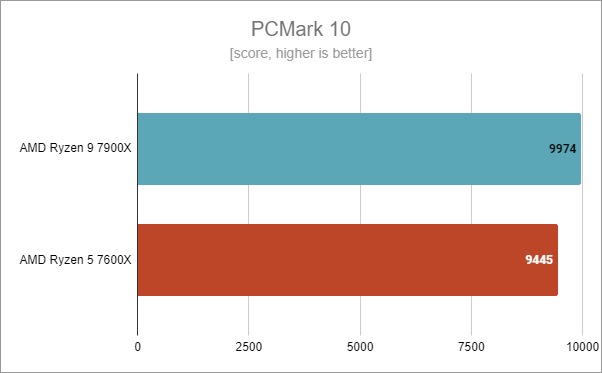
ASUS TUF Gaming B650-Plus WiFi: Benchmark results in PCMark 10
In JetStream 2, both AMD Ryzen 7000 processors I had (Ryzen 5 7600X and Ryzen 9 7900X) got the same huge score of 319 points. Evidently, the motherboard was stable, and I had no issues in running these tests.
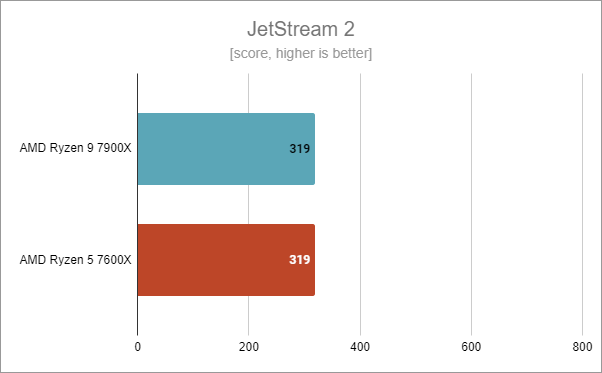
ASUS TUF Gaming B650-Plus WiFi: Benchmark results in JetStream 2
I noticed the same thing when I ran the benchmark tool from 7-Zip, a popular file compression application. Both the AMD Ryzen 9 7900X and the AMD Ryzen 5 7600X managed top compression speeds.
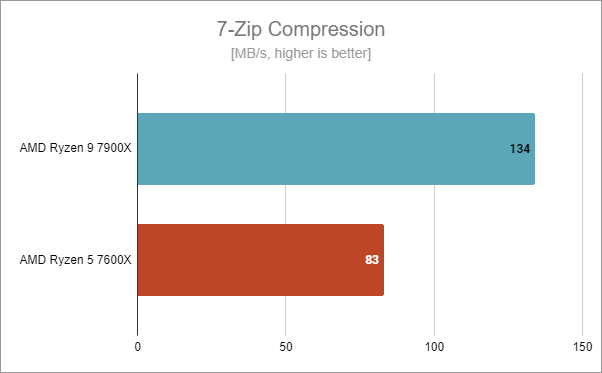
ASUS TUF Gaming B650-Plus WiFi: Benchmark results in 7-Zip Compression
Similarly, in 7-Zip’s decompression test, both processors pulled off some very high speeds, obviously each according to their number of cores and threads.
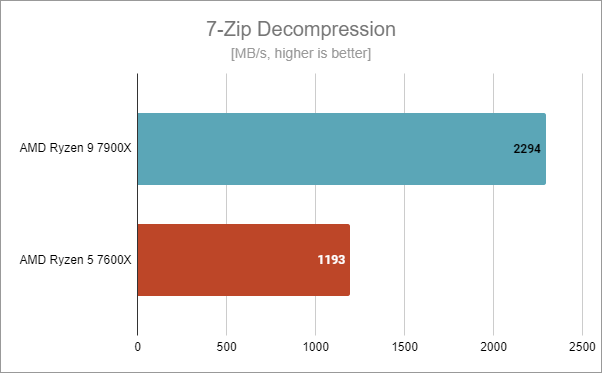
ASUS TUF Gaming B650-Plus WiFi: Benchmark results in 7-Zip Decompression
The ASUS TUF Gaming B650-Plus WiFi motherboard proved to be powerful and well-built for gaming too, as these next results will show you:
In Shadow of the Tomb Raider, using the ASUS TUF Gaming B650-Plus WiFi motherboard, both the Ryzen 9 7900X and the Ryzen 5 7600X managed to render about 300 frames per second on average. It’s a high number, no matter how you look at it.
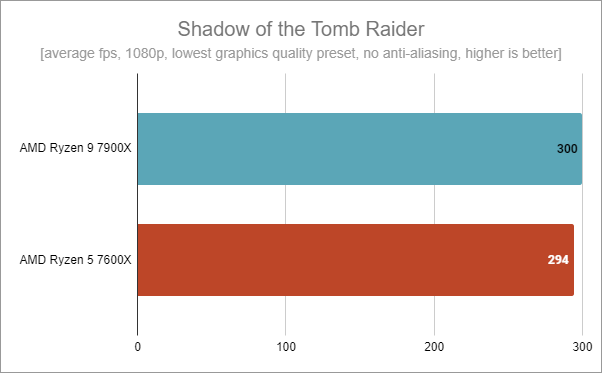
ASUS TUF Gaming B650-Plus WiFi: Benchmark results in Shadow of the Tomb Raider
In Metro Exodus, the processors were pushed to their limit, as this game is extremely demanding. However, the motherboard was able to sustain them without fault, and the average number of frames rendered per second got over 300.
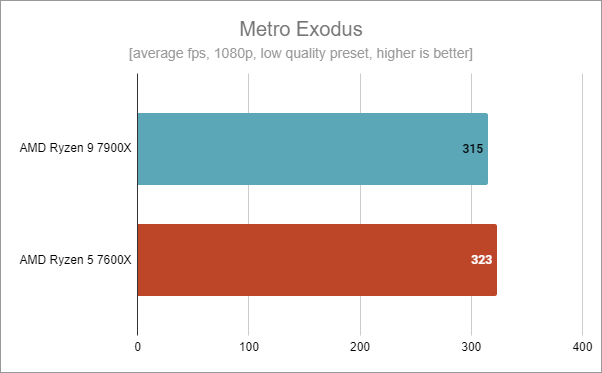
ASUS TUF Gaming B650-Plus WiFi: Benchmark results in Metro Exodus
In Assassin’s Creed Valhalla, I got the exact same framerate with both processors, and while the motherboard didn’t have any issues, it looks like my graphics card became a bottleneck here.
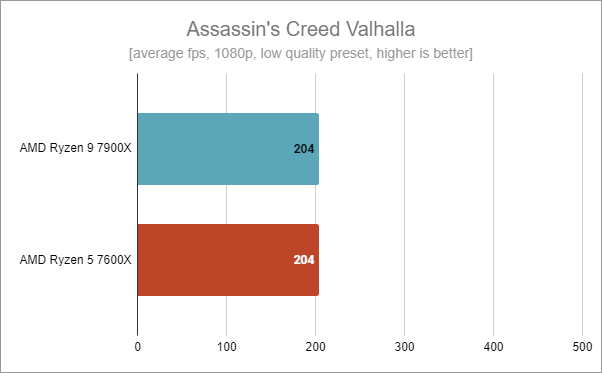
ASUS TUF Gaming B650-Plus WiFi: Benchmark results in Assassin's Creed Valhalla
During all the benchmarks I ran, the ASUS TUF Gaming B650-Plus WiFi motherboard proved to be excellent. Everything was stable, and I encountered no issues whatsoever. Moreover, the motherboard was reliable even in the most demanding scenarios, including rendering jobs and gaming.
The software bundled with ASUS TUF Gaming B650-Plus WiFi
The ASUS TUF Gaming B650-Plus WiFi motherboard doesn’t bundle any bloatware, and that’s great. The only thing you get, besides the mandatory drivers, is the well-known Armoury Crate app, and I find it useful. This software allows you both to view information about your system and manage the ASUS motherboard and other ASUS hardware components you might have inside your PC. You can use it to do things like check your processor’s temperature and voltage, adjust lighting effects, configure fan speed, or enable the power-saving mode. And first and foremost, it helps you download and install all the drivers needed, plus update the UEFI BIOS.
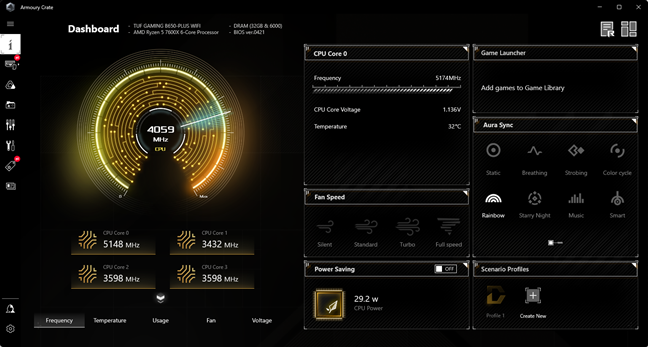
The Armoury Crate app is useful
Armoury Crate is a handy application that you might want to keep on your computer. I find it helpful for checking my PC’s state from time to time, and I also use it to control fan speed and RGB lights. If you own an ASUS TUF Gaming B650-Plus WiFi motherboard, you should at least try the Armoury Crate app and only decide whether it’s worthwhile using after some time.
What is your opinion about the ASUS TUF Gaming B650-Plus WiFi?
The ASUS TUF Gaming B650-Plus WiFi is a motherboard I like and which I believe is a good choice for anyone who wants to build a more affordable desktop PC based on an AMD Ryzen 7000 processor. The results I’ve got were all satisfactory, and I plan to come back with a comparison between this motherboard and another, based on the more expensive X670E chipset, in the future. Until then, I would like to know your thoughts about it. Comment using the options available below and share your perspective.


 09.11.2022
09.11.2022 
